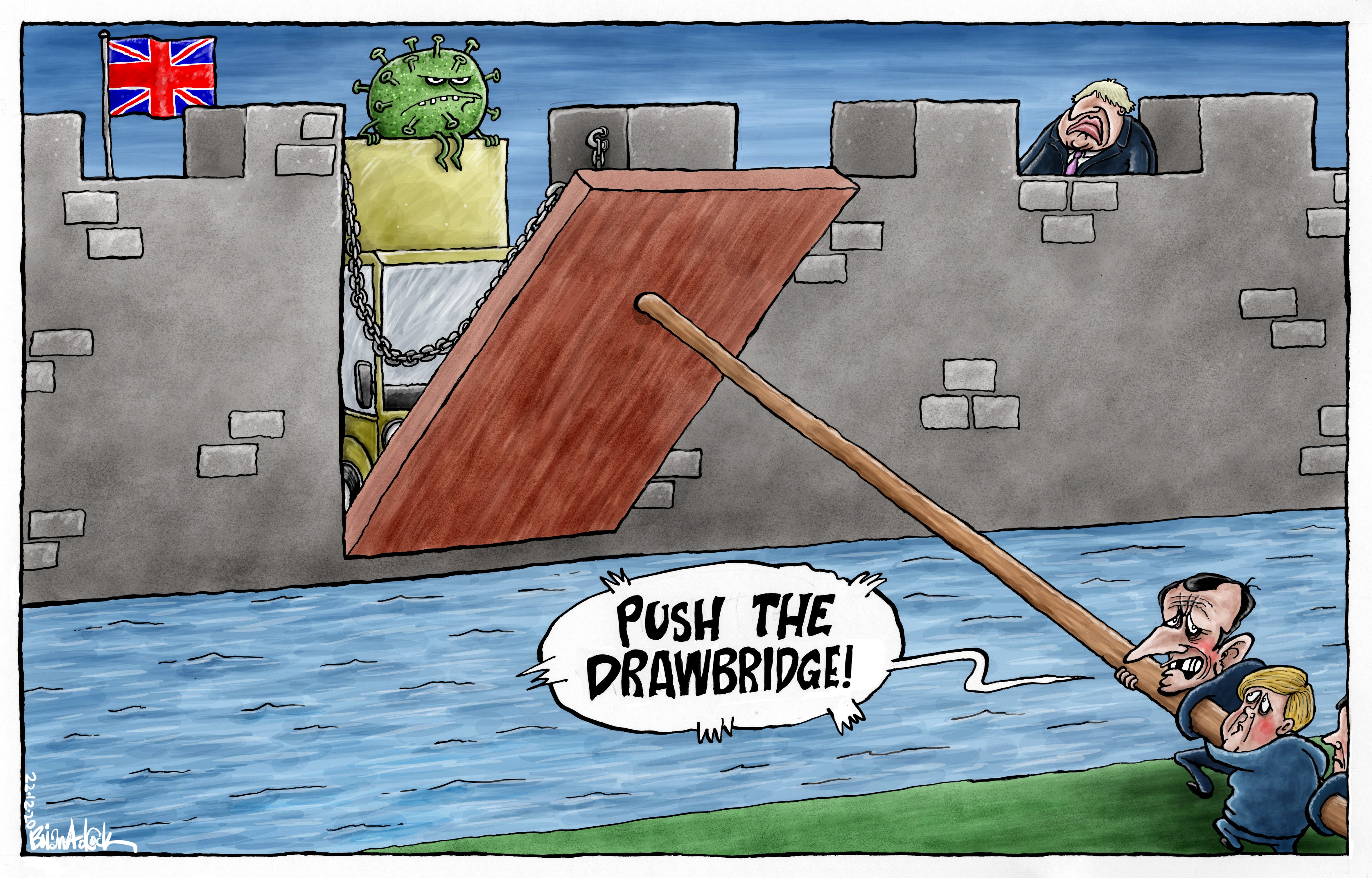The border issues are again the result of the government doing too little, too late
Editorial: Action should have been taken to reduce human contact irrespective of whether the spike was due to a mutation, to public behaviour or something else

Ministers are no doubt well used to the rhetorical charge that Britain is suffering international isolation because of Brexit, its cuts in international aid – and much else. However, now the “isolation” is becoming rather more literal.
Some 40 countries have banned travellers from the UK, and European governments have halted goods traffic across the English Channel. There is some deep irony in the way that live British seafood from soon-to-be sovereign waters is being sent back to the ports whence it came. That may be an omen of times to come if the UK is priced out of European markets. And all this is happening before the end of the Brexit transition period.
The blame game might be the last thing on the minds of the lorry drivers cooped up in their cabs somewhere near Dover, but the question of accountability does nonetheless arise. The charge against No 10 is a familiar one – that it did too little too late.
The number of cases was rising rapidly before the full nature of the new variant of the virus was understood – a real obvious trend. Action should have been taken to reduce human contact irrespective of whether the spike was due to a mutation, to public behaviour or something else.
This latest crisis is not a matter of national pride, nor Brexit, but of public health. Had the positions been reversed, the very people complaining about the closure of the borders would now be demanding a ban on traffic from France. Britain has imposed embargoes on people, if not goods, from many countries, notably Denmark when a mutation of Covid-19 in mink was discovered.
The answer, not for the first time, lies in reliable testing. If hauliers and travellers can demonstrate a recent negative test for Covid-19, then they ought to be allowed to proceed across Europe and beyond. That would still mean delays, waste and additional cost, but it is at least a way forward.
The cautious reaction of governments in continental Europe is understandable. Yet the reality is that a Europe with largely open borders cannot prevent the spread of any virus indefinitely, and the new variant may well already be establishing itself in Europe. That is the nature of a pandemic.
The authorities can and should slow the spread by restricting travel, but before long the new variant will likely have spread so far as to make such restrictions irrelevant. That, bleak as it is, is about as good as the immediate prospects for the Channel ports will get.

Join our commenting forum
Join thought-provoking conversations, follow other Independent readers and see their replies
Comments